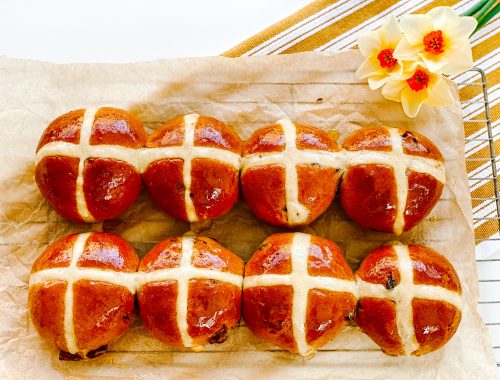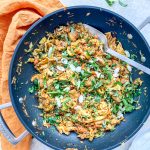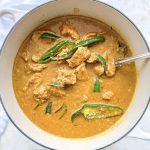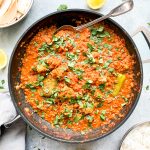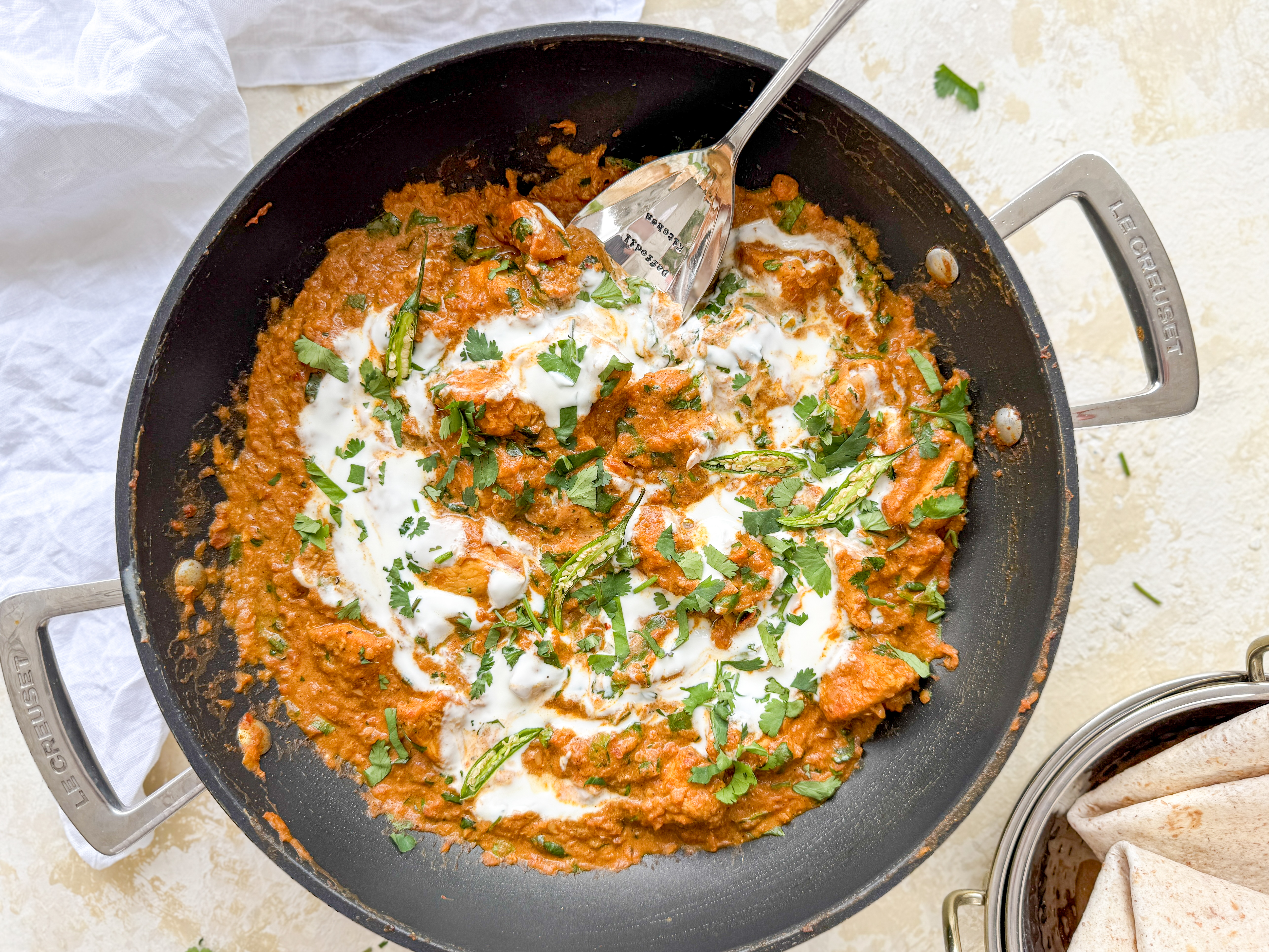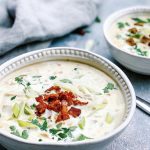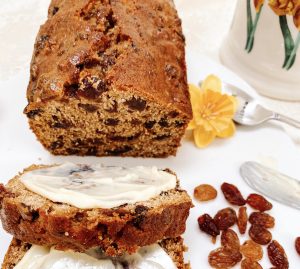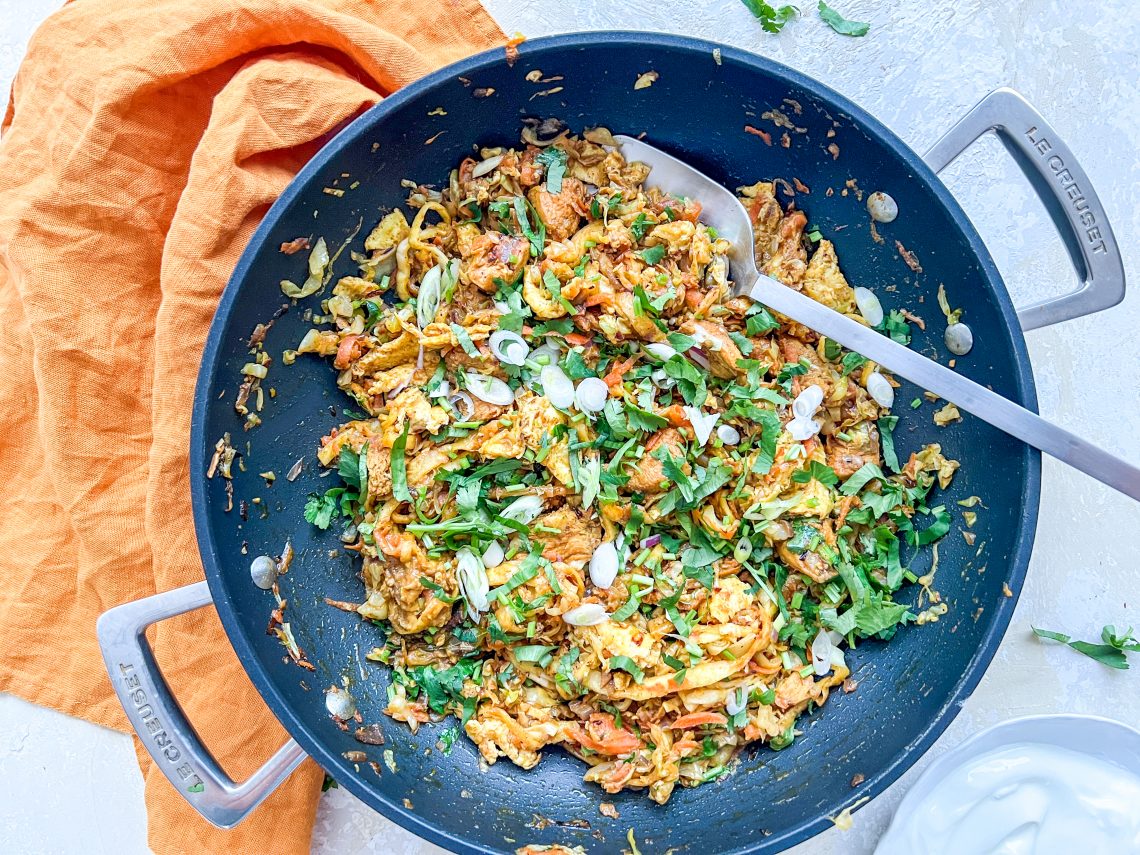
Kothu with Chicken Curry
This Kothu is a wonderful mix of Sri Lankan Chicken Curry with sliced, day old roti/flatbreads, eggs, shredded cabbage and grated carrots served with spring onions, coriander and natural yoghurt. An incredible way to use up leftovers, this dish deserves a full recipe and post in its own right. Utterly moreish and loaded with extra vegetables, this recipe is a wonderful way to reduce waste in the kitchen whilst guaranteeing a fantastic meal.
What is Kothu?
Kothu is a classic Sri Lankan street food which consists of sliced roti (flatbread), your choice of chicken, vegetable or fish curry, eggs, spring onions and some extra vegetables. Food is never wasted in Sri Lanka and this dish has developed as a way to use up leftover roti, curry and vegetables. However, it has become so popular that many street food vendors specialise in kothu.
Where is the recipe from?
This recipe is from Hoppers, The Cookbook. There are 3 Hoppers restaurants in London, at King’s Cross, in Soho and another in Marylebone. These award winning restaurants celebrate food inspired by the cuisines from Sri Lanka and South India.
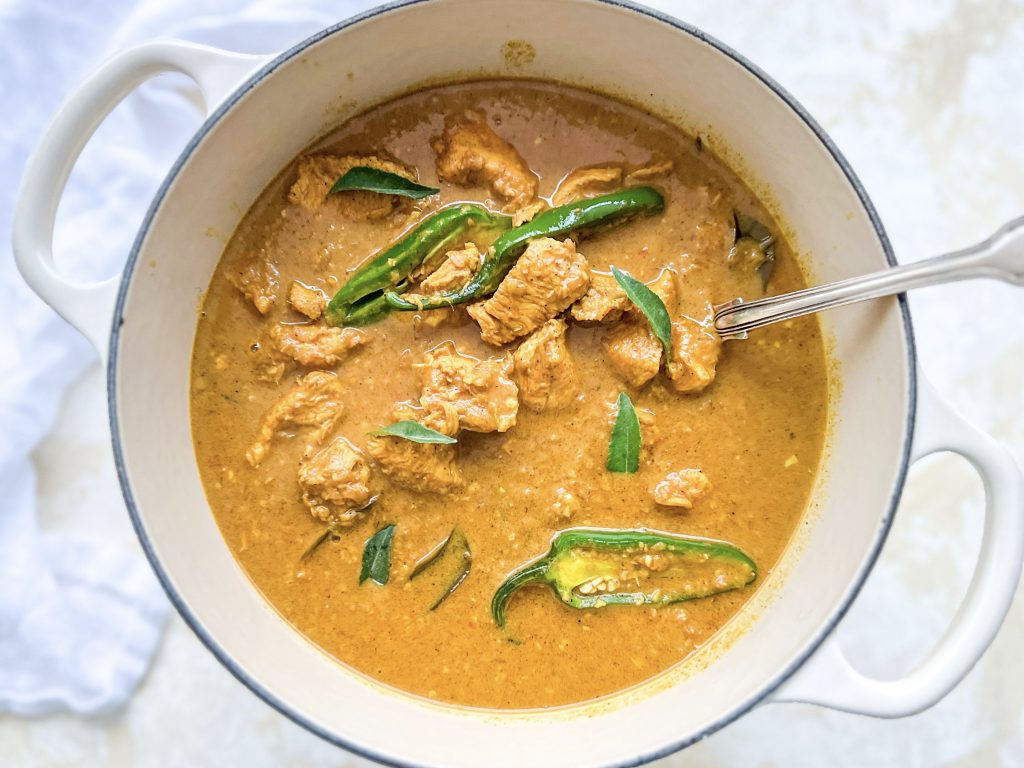
How to make Kothu with Chicken Curry:
Collect all the ingredients together:
- vegetable oil
- red onion peeled and thinly sliced or chopped
- carrot, washed, trimmed and grated
- white/hispi/sweetheart cabbage, stem removed and leaves finely sliced
- eggs
- Hoppers’ Chicken Curry
- shredded roti/flatbreads either homemade or shop bought. You could even use tortillas.
- spring onions, trimmed and roughly sliced
- fine salt
- freshly ground black pepper
- small handful fresh coriander, roughly chopped
To serve:
- natural yoghurt
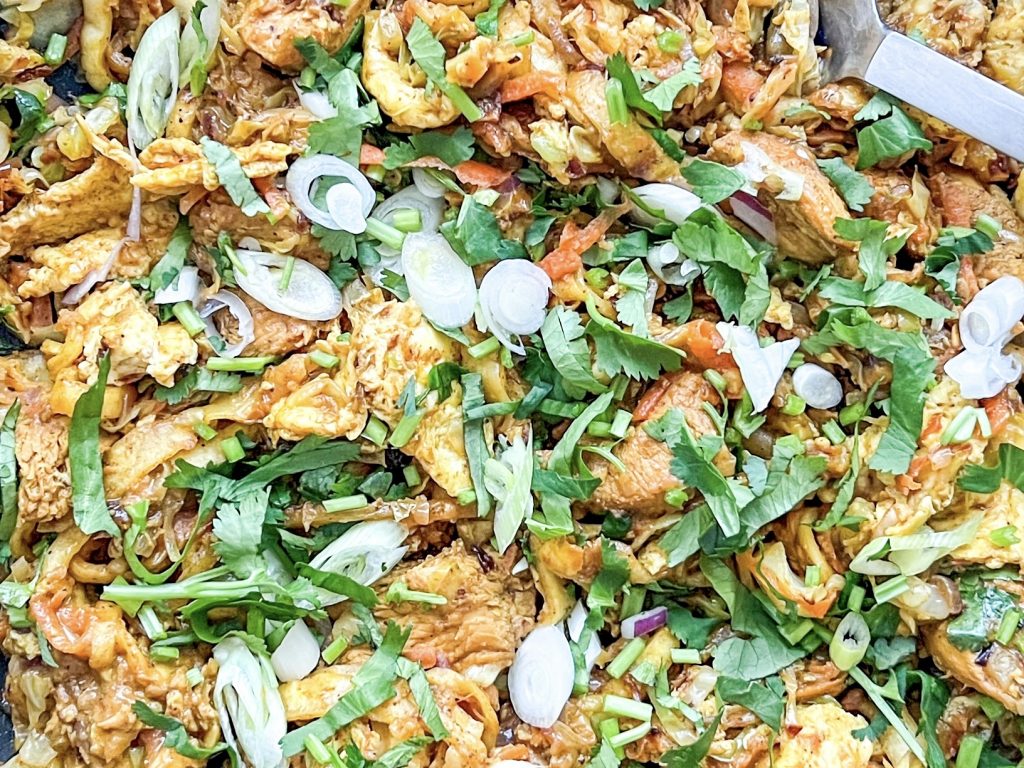
How to make this fabulous dish:
- Prepare the vegetables and roti:
- red onion – peel and thinly slice or chop
- carrot – wash, trim and grate
- white/hispi/sweetheart cabbage – remove stem and leaves finely sliced
- roti/flatbreads – shred
- spring onion – trim and roughly slice
- coriander – roughly chop
- Heat 1 tablespoon of oil in a cast iron pan/frying pan/wok over a moderately high heat and add the onion. Cook for 2 – 3 minutes, stirring form time to time.
- Turn the heat to as high as possible and add the cabbage and carrot. Stir fry for around 5 minutes, stirring regularly, until the moisture has disappeared and the vegetables have softened.
- Push the vegetables to one side of the pan, add the remaining 1 tablespoon oil and pour in the beaten eggs. Leave on the heat until nearly set and then use a wooden spoon to break it up and mix into the vegetables.
- Add the chicken from the curry and half the sauce. Continue to stir fry until hot, around 2 minutes.
- Add the shredded roti, toss to heat through and then add the remaining curry sauce and half of the spring onions. Heat through.
- Serve: sprinkle over the remaining spring onions and coriander and serve immediately with natural yoghurt or raita.
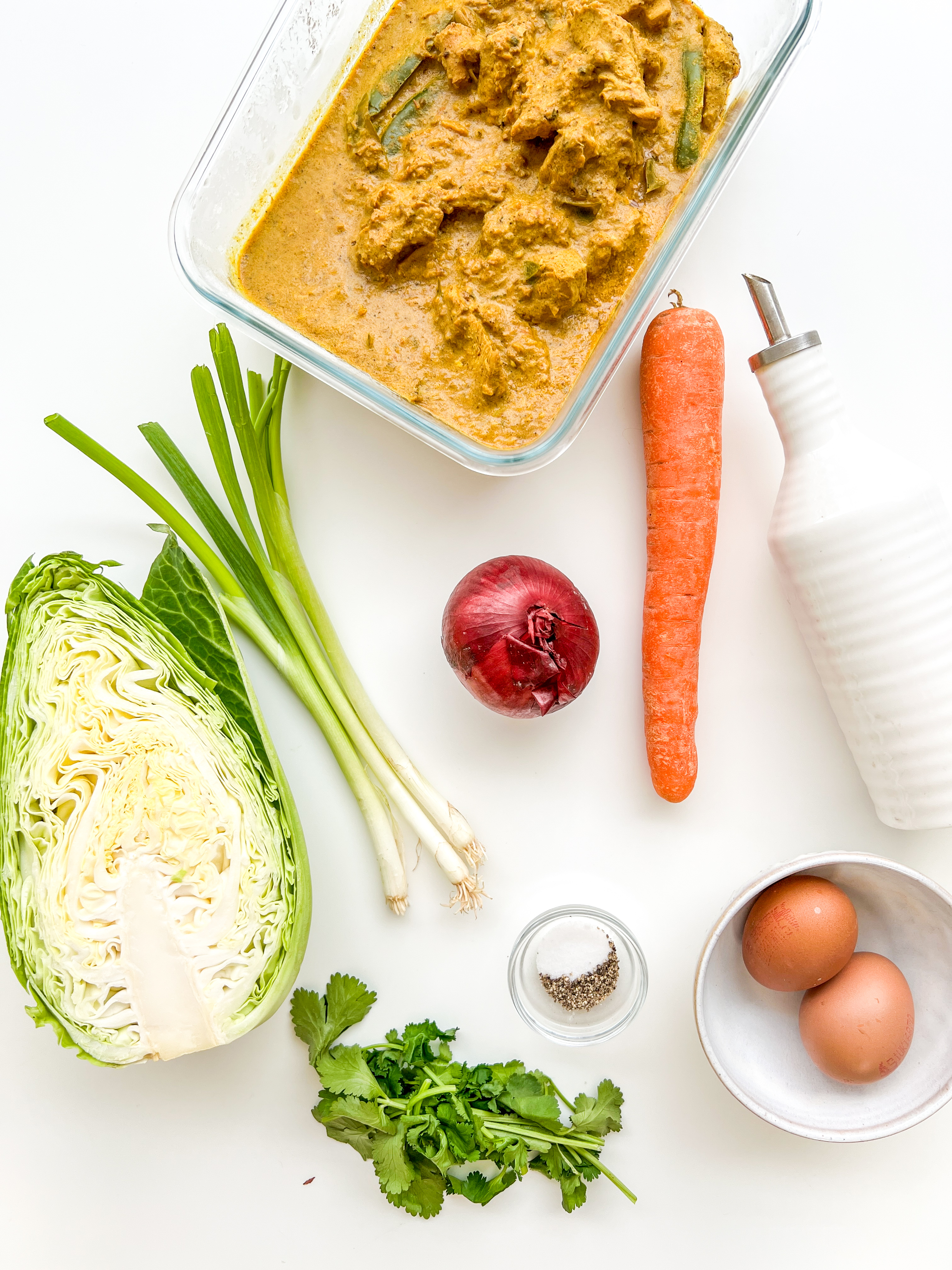
Ingredients 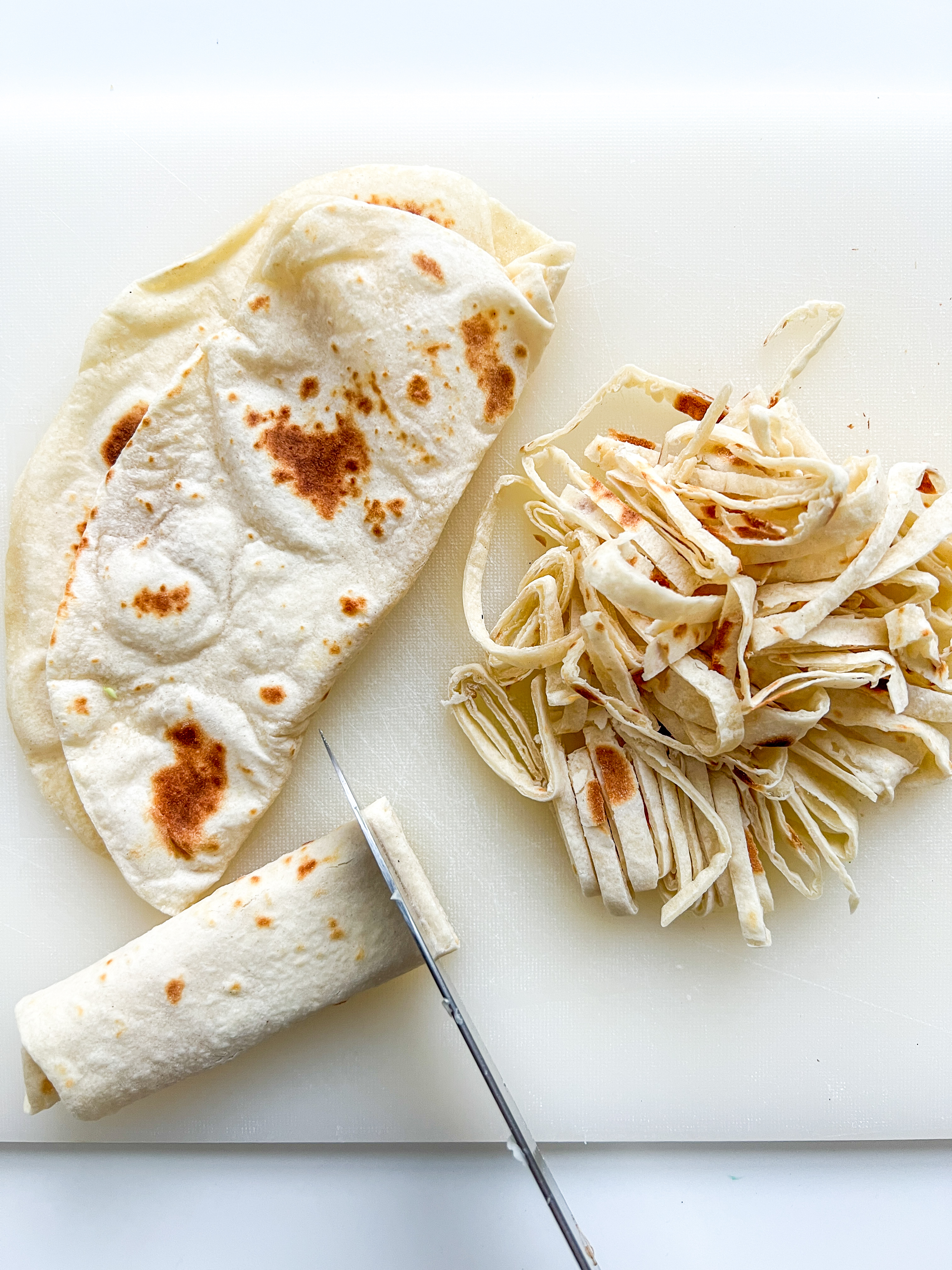
1 Shredded roti 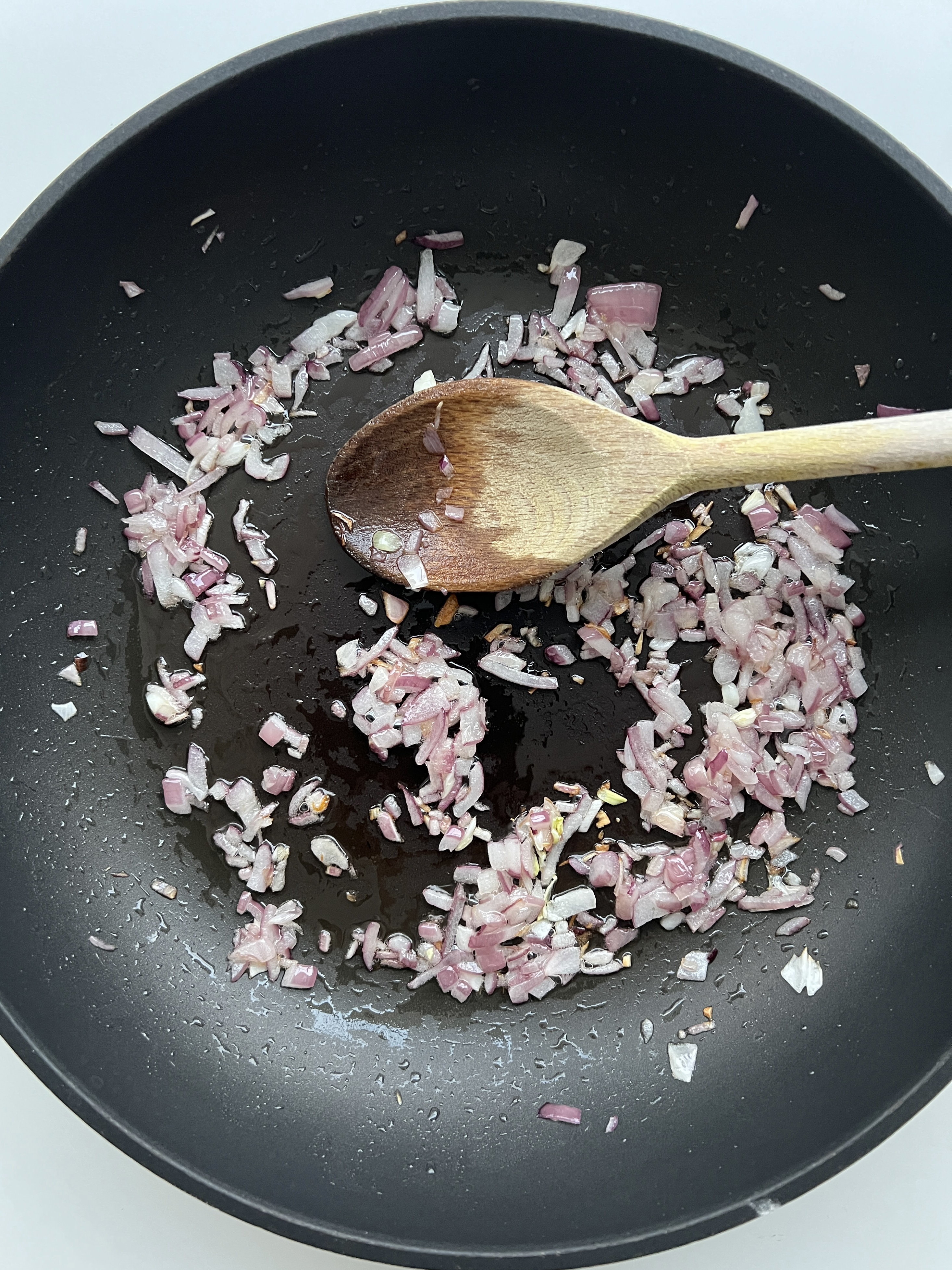
2 Onion 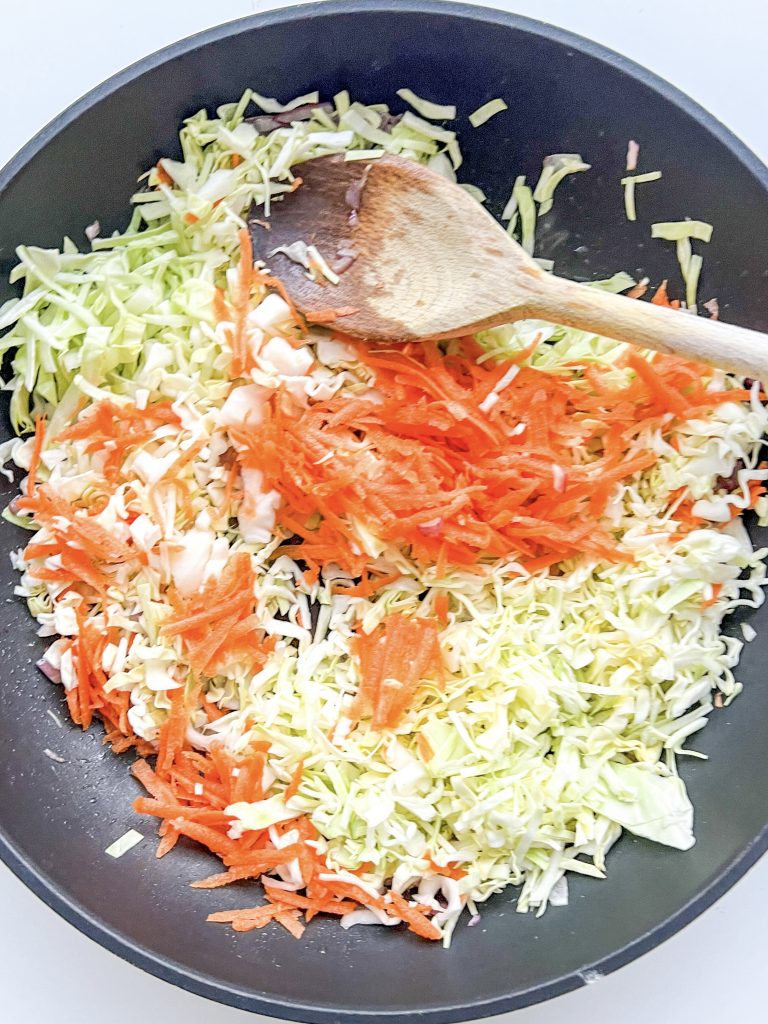
3 cabbage, carrot 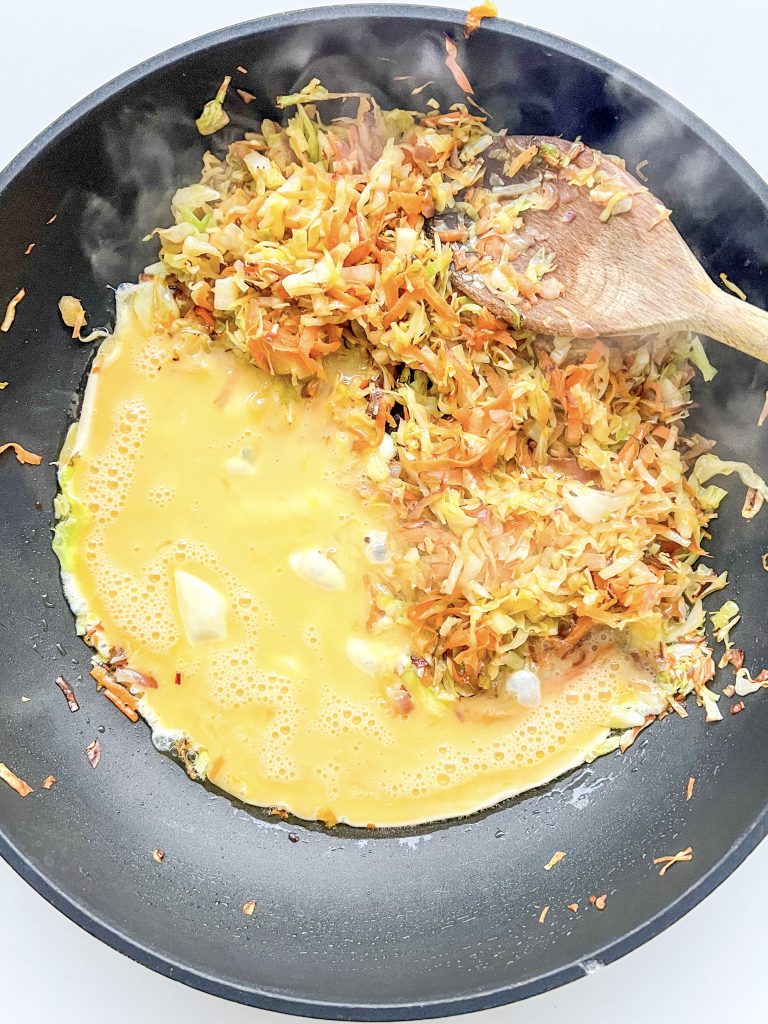
4 Eggs 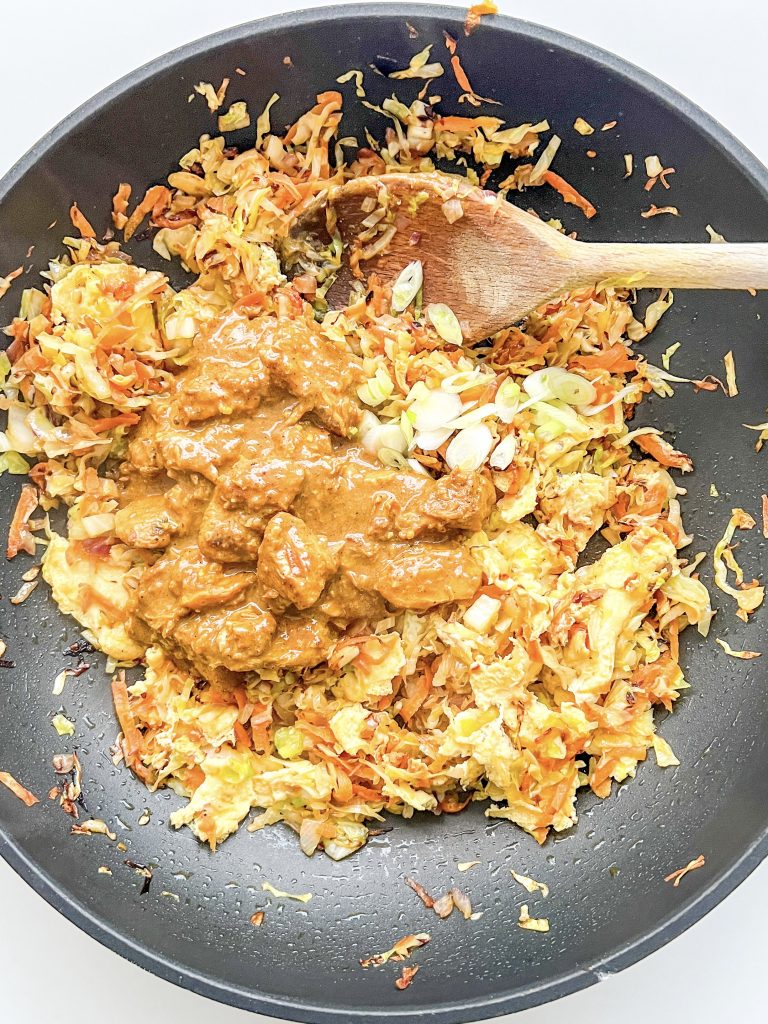
5 Curry 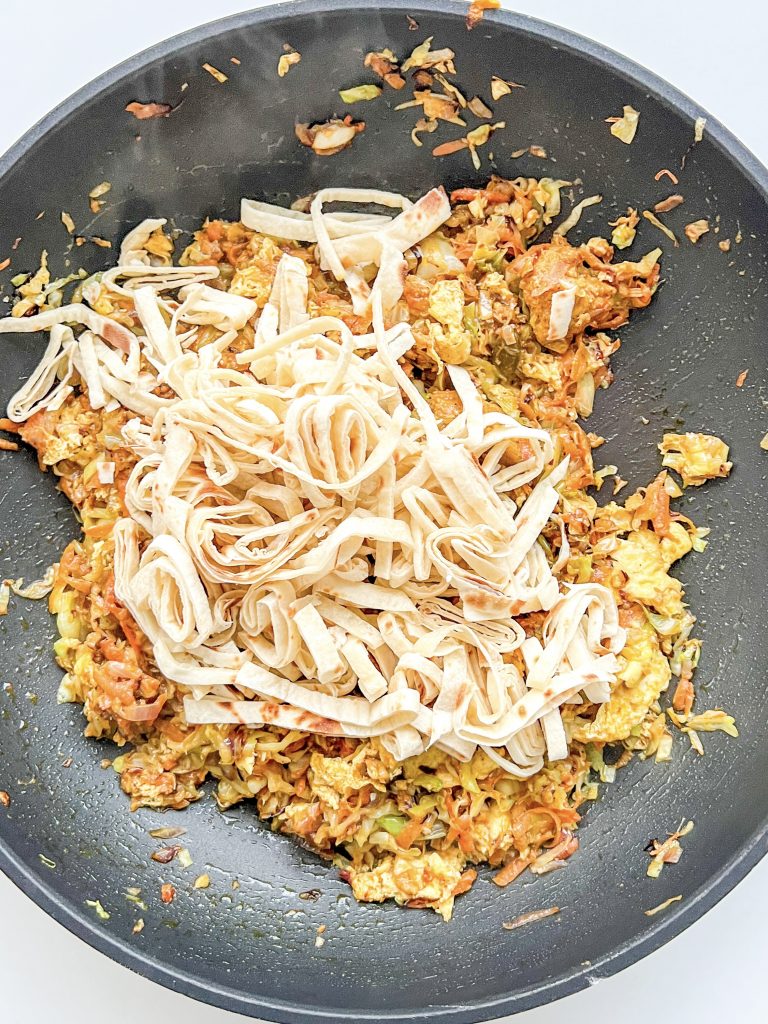
6 Shredded roti 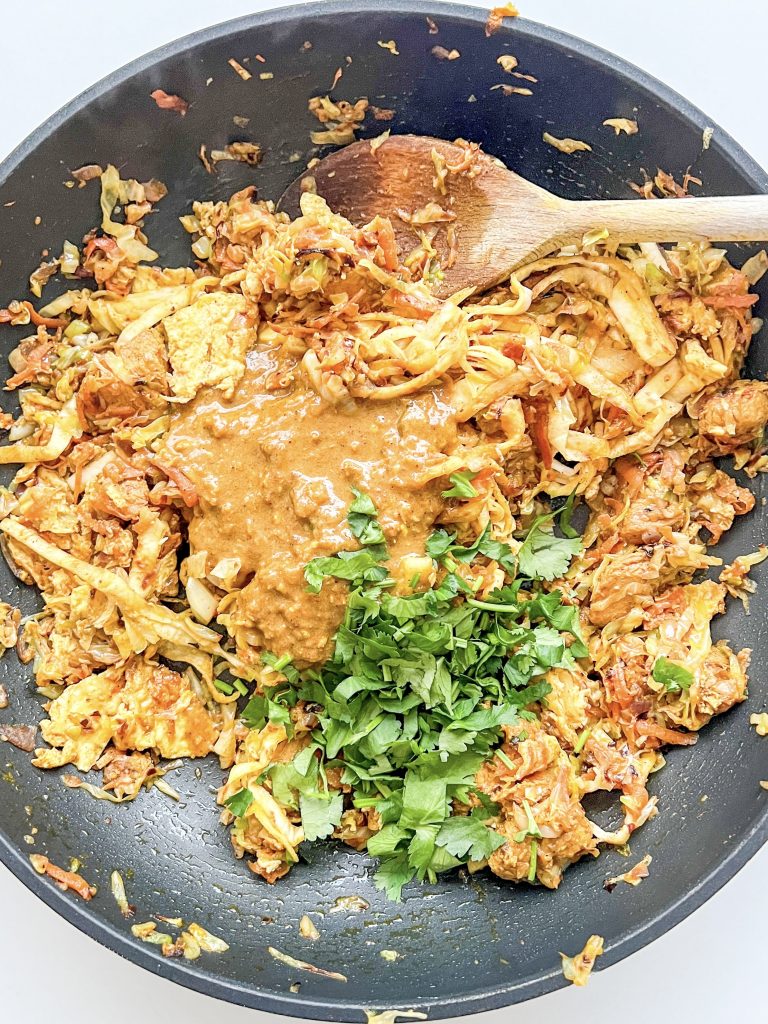
7 Sauce and coriander 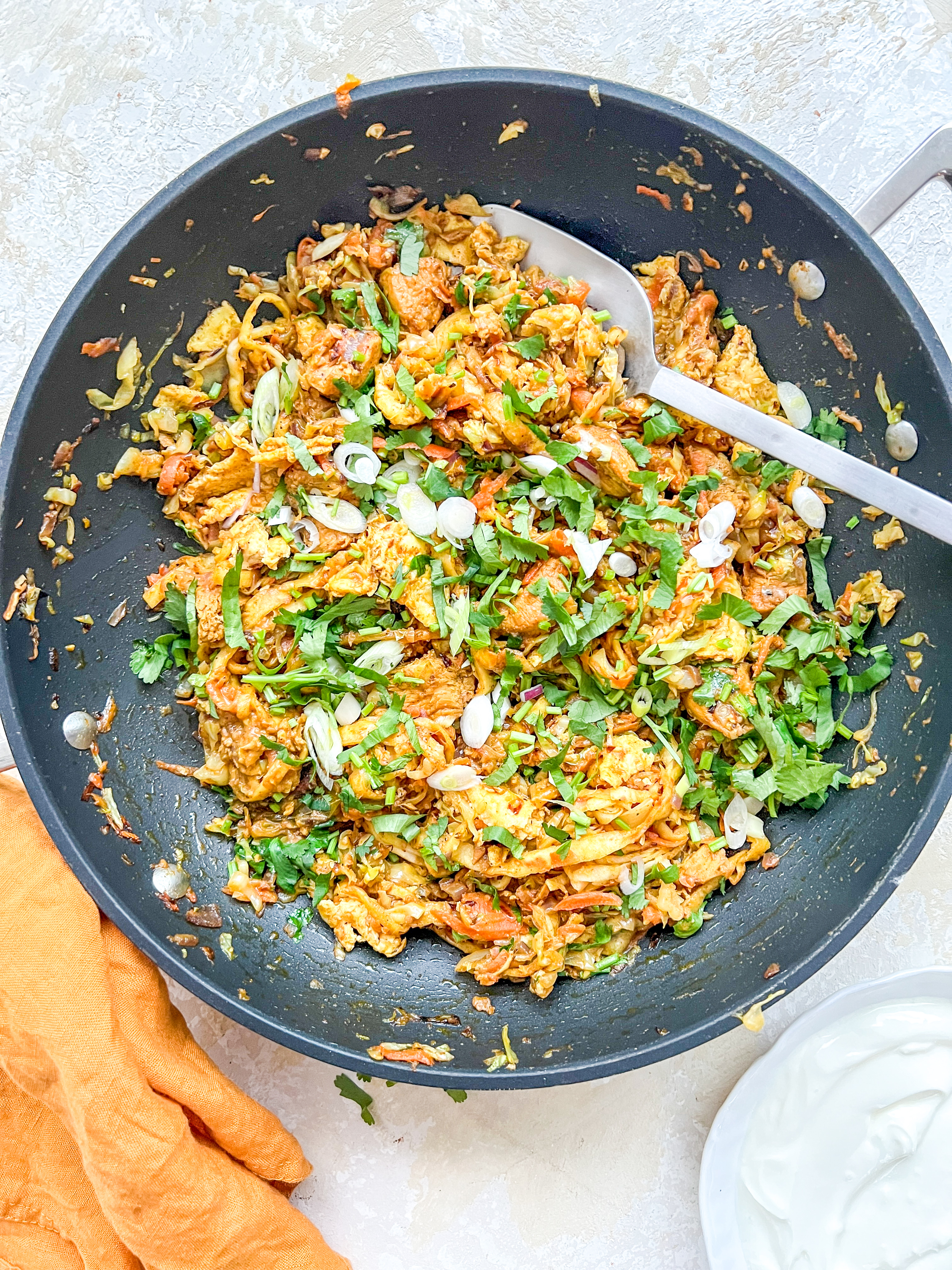
Serve
Made this recipe?
If you make this recipe, do please tag me on instagram @daffodil_kitchen. You could also leave a comment in the box directly below the recipe.
Kothu with Chicken Curry
This Kothu is a wonderful mix of Sri Lankan Chicken Curry with sliced, day old roti/flatbreads, eggs, shredded cabbage and grated carrots served with spring onions, coriander and natural yoghurt. An incredible way to use up leftovers, this dish deserves a full recipe and post in its own right. Utterly moreish and loaded with extra vegetables, this recipe is a wonderful way to reduce waste in the kitchen whilst guaranteeing a fantastic meal.
Ingredients
- 2 tablespoons vegetable oil
- 80g/ 1 small red onion peeled and thinly sliced or chopped
- 100g/1 medium/large carrot, washed, trimmed and grated
- 250g white/hispi/sweetheart cabbage, stem removed and leaves finely sliced
- 2 eggs, lightly beaten
- 300g Hoppers’ Chicken Curry
- 150g shredded roti/flatbreads, either homemade or shop bought. You could even use tortillas.
- 2 spring onions, trimmed and roughly sliced
- ¼ – ½ teaspoon fine salt
- ½ teaspoon freshly ground black pepper
- small handful fresh coriander, roughly chopped
To serve:
- natural yoghurt
Instructions
-
Collect together your equipment (see Recipe Notes below) and ingredients.
-
Prepare the vegetables and roti:
– red onion – peel and thinly slice or chop
– carrot – wash, trim and grate
– white/hispi/sweetheart cabbage – remove stem and finely slice leaves
– roti/flatbreads – shred
– spring onion – trim and roughly slice
– coriander – roughly chop
-
Heat 1 tablespoon of oil in a cast iron pan/frying pan/wok over a moderately high heat and add the onion. Cook for 2 – 3 minutes, stirring form time to time.
-
Turn the heat to high and add the cabbage and carrot. Stir fry for around 5 minutes, stirring regularly, until the moisture has disappeared and the vegetables have softened.
-
Push the vegetables to one side of the pan, add the remaining 1 tablespoon oil and pour in the beaten eggs. Leave on the heat until nearly set and then use a wooden spoon to break it up and mix into the vegetables.
-
Add the chicken from the curry and half the sauce. Continue to stir fry until hot, around 2 minutes.
-
Add the shredded roti, toss to heat through and then add the remaining curry sauce and half of the spring onions. Heat through.
-
Serve: sprinkle over the remaining spring onions and coriander and serve immediately with natural yoghurt on the side.
Recipe Notes
Equipment:
- chopping board and knife
- kitchen scales and measuring spoons
- cast iron pan/frying pan/wok
- mixing bowl – for the eggs
What is Kothu?
Kothu is a classic Sri Lankan street food which consists of sliced roti (flatbread), your choice of chicken, vegetable or fish curry, eggs, spring onions and some extra vegetables. Food is never wasted in Sri Lanka and this dish has developed as a way to use up leftover roti, curry and vegetables. However, it has become so popular that many street food vendors specialise in kothu.
Where is this recipe from?
This recipe is from Hoppers, The Cookbook. There are 3 Hoppers restaurants in London, at King’s Cross, in Soho and another in Marylebone. These award winning restaurants celebrate food inspired by the cuisines from Sri Lanka and South India.

Hoppers' Chicken Curry
You May Also Like
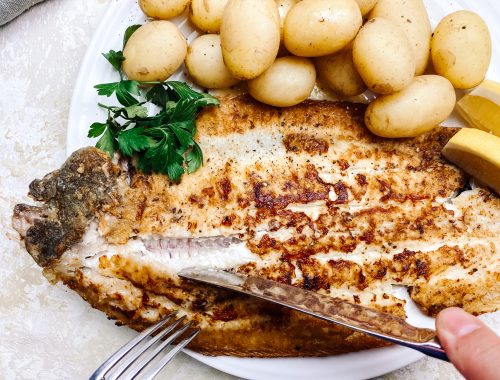
Pan Fried Fish
4th November 2020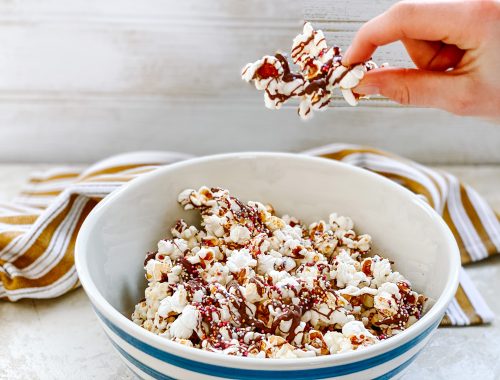
White and Milk Chocolate Salted Popcorn with Multi-coloured Sprinkles
21st March 2021